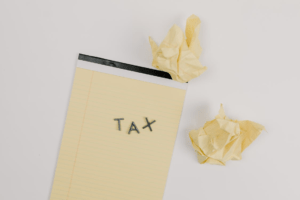CGT on Second Properties
If you own multiple properties or have a second home, you might be required to pay capital gains tax (CGT) if you decide to sell up. HMRC places a tax on any of the profits you might make from ‘chargeable assets.’ This includes a property that’s not your main home. So, let’s find out more about CGT and how to work out your CGT liabilities. A capital gains tax accountant can also help you to get your finances in order.
What is Capital Gains Tax for a Second Home?
Capital Gains Tax is a tax on the profit when you sell an asset that’s increased in value. You will not be taxed on the full amount you receive from the sale – just the gain. So, if you’ve added an extension, converted a garage, built a garden studio or done anything else that could increase the value of your second home, you should seek CGT advice and budget for a CGT charge. Do the same if the housing market is favourable at the time of sale.
What is the CGT Rate for a Second Home?
The rate of capital gains tax depends on the type of asset that has been sold or gifted. When selling a second home, capital gains tax is set at 28% for higher rate taxpayers and 18% for basic rate taxpayers. So, if you bought a property for £200,000 and sold it for £400,000, you will be taxed on the £200,000 profit, minus certain costs and allowances.
What is the Threshold for Tax-Free Gains?
If you sell a second home, you’re entitled to tax-free gains. In the current tax year, the threshold is £6000 (recently cut from £12,300). If the sale of your second property makes this much profit or less, you won’t be liable for capital gains tax. As the above allowance is per person, a couple with a jointly owned property can double their tax-free allowance to £12,000. Only profits above this figure will be eligible for CGT charges. It’s worth noting that the CGT threshold will be cut again from £6,000 to £3,000 in April 2024 making CGT charges more likely.
If in doubt, look for a ‘property tax specialist near me’ to help you make accurate calculations and avoid paying too much tax.
How to Avoid CGT
While outright avoiding capital gains tax owed could land you in hot water with HMRC, there are ways to navigate high charges. If you have lived in your second home as a main residence for a number of years, for example, you might be able to benefit from Private Residents Relief (PRR). PRR is a CGT relief that exempts all or part of a gain arising on the sale of your property. If you rented your property out for the last nine months of ownership, you may also be able to reduce your tax liabilities.
If you need help with capital gains tax, contact IBISS and Co today. As an award-winning firm of chartered accountants and tax specialists, you’ll get all the help you need. IBISS & Co have offices in Barking, Tooting and Walsall.




